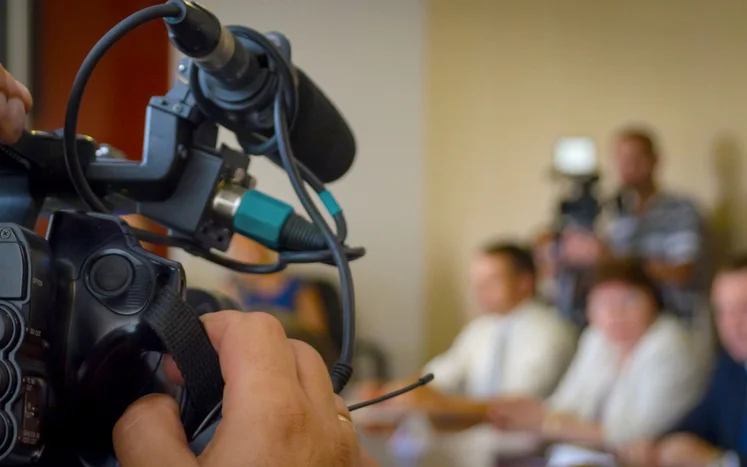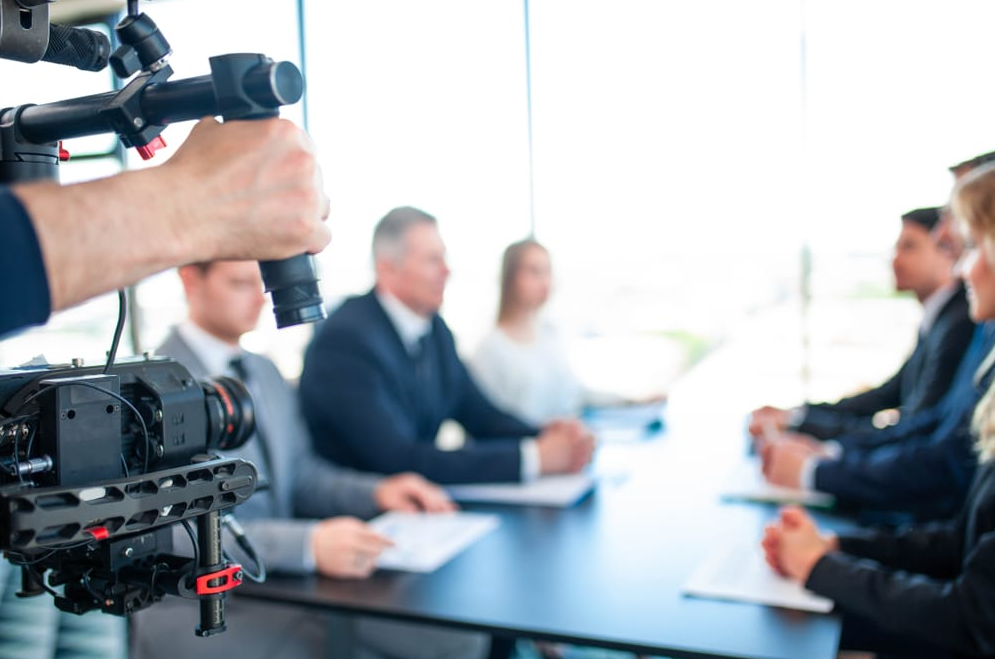High-Resolution Legal Videography for Accurate Evidence Recording.
High-Resolution Legal Videography for Accurate Evidence Recording.
Blog Article
The Function of Legal Videography in Depositions and Trials
Lawful videography has actually arised as a crucial device in both depositions and trials, offering a complex technique to documenting witness testaments. As lawful specialists increasingly acknowledge its worth, it triggers a deeper exam of just how these visual documents can influence juror perceptions and trial outcomes.
Importance of Legal Videography
Lawful videography plays a pivotal role in the documents and discussion of depositions and tests. This customized area integrates technological abilities with lawful understanding to produce a dependable record of proceedings that can significantly influence case end results. The appearance of legal videography boosts the understanding of witness statement, permitting jurors and courts to observe not only the talked words however also the attitude, feelings, and body movement of the witnesses.

The relevance of legal videography prolongs past the court room; it also plays a vital role in maintaining proof for future reference, whether for charms or additional lawful activity. Therefore, its combination into the lawful procedure is necessary for ensuring a reasonable and precise depiction of the realities, ultimately adding to the quest of justice.

Process of Legal Videography
While capturing the subtleties of depositions and tests, the procedure of lawful videography involves a number of critical actions that make sure high-grade, precise recordings. A specialist legal videographer prepares by evaluating the situation materials and understanding the particular needs of the deposition or test. This preparation includes familiarizing themselves with the participants and the context, which assists in recording essential details.
On the day of the recording, the videographer establishes the essential devices, which usually includes high-def video cameras, microphones, and proper lights. Making certain optimum angles and sound high quality is vital, as it straight impacts the effectiveness of the recording. The videographer communicates with lawyers and participants to develop procedures, guaranteeing that every person comprehends the recording process.
Throughout the deposition or trial, the videographer diligently records the procedures, paying attention to both spoken and non-verbal signs. legal videography. This includes recording the attitude and responses of witnesses and lawyers. After the session wraps up, the videographer may edit the video footage for clearness and compliance with lawful criteria, producing an end product that properly shows the proceedings for future referral and use in legal contexts
Benefits in Depositions
The incorporation of videography in depositions uses various benefits that boost the general process of collecting evidence. One primary advantage is the capacity to capture witness statements with aesthetic and acoustic fidelity, giving a much more precise depiction of the witness's temperament, tone, and body language. This multidimensional strategy allows attorneys and juries to examine reliability better than standard written transcripts alone.
Additionally, videographed depositions act as an effective device for maintaining statement. Must a witness become inaccessible for test, their videotaped deposition can be played in court, ensuring that their proof remains accessible and pertinent. This aspect substantially minimizes the threat of losing vital information that might impact instance outcomes.
Furthermore, using legal videography promotes much better prep site here work for attorneys. Examining video footage allows legal groups to examine and fine-tune their strategies, see it here determining strengths and weak points in their cases. This preparatory benefit can lead to even more engaging discussions in court.
Lastly, videography boosts the overall professionalism and reliability of the deposition process, instilling confidence in clients relating to the thoroughness of their lawful representation. By leveraging technology, legal specialists can substantially enhance the performance of depositions.
Effect On Trials
In numerous tests, the integration of videography can dramatically influence the discussion of proof and the jury's assumption. Lawful videography records witness testimonies and crucial proof in a dynamic layout, allowing jurors to engage with the material on numerous degrees. This aesthetic part improves the narration aspect of a test, supplying context and emotional resonance that conventional text-based proof might do not have.
In addition, video recordings can act as effective tools for impeachment during interrogation. When inconsistencies arise in between a witness's prior declarations and their courtroom testimony, video proof offers an objective referral that can sway jurors' viewpoints. This immediacy and quality can bolster the credibility of a party's story while at the same time weakening opposing debates.
Furthermore, making use of videography can help enhance complicated information, making go to website it more easily accessible to jurors that might have a hard time to understand complex details presented exclusively through spoken testimony. By integrating visuals with acoustic information, lawful videography can improve retention and understanding, inevitably affecting the jury's decision-making process. The influence of videography in tests extends past simple visual appeals; it plays an important role in forming the legal landscape and outcomes.
Future Trends in Legal Videography
As we look towards the future of lawful videography, a number of emerging fads guarantee to improve its role within the court. One substantial fad is the integration of expert system (AI) in video clip analysis and editing - legal videography. AI can simplify the procedure of identifying essential moments in videotaped depositions, allowing attorneys to rapidly access pertinent material, thereby boosting efficiency in situation preparation
In addition, the surge of virtual reality (VR) and boosted fact (AR) modern technologies is expected to change how jurors experience evidence. By submersing jurors in a substitute environment, these modern technologies can give a more profound understanding of complicated situations, resulting in more informed deliberations.

Furthermore, the boosting need for remote depositions, increased by the COVID-19 pandemic, will likely proceed. Legal videographers will need to adapt to brand-new software application and platforms to make certain top quality recordings in digital setups.
Lastly, the growing focus on information safety and security will necessitate more stringent procedures for storing and sharing video clip evidence. As the legal landscape evolves, lawful videographers must remain abreast of these fads to maintain their relevance and efficiency in the judicial process.

Verdict
In summary, lawful videography serves an important function in the judicial process, enhancing the stability of depositions and tests. By catching the nuances of witness testaments, this medium not only protects necessary evidence but additionally aids in presenting information successfully to jurors. The importance of aesthetic paperwork in assessing integrity and facilitating interrogation can not be overemphasized. As innovation remains to progress, legal videography is poised to more change its duty within the lawful landscape.
Report this page